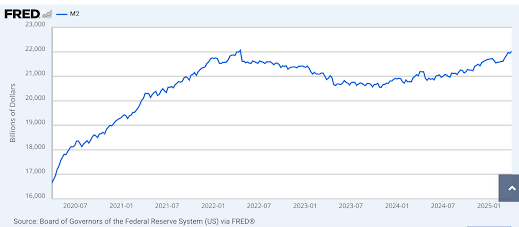(Drivebycuriosity) - I am fascinated by China, a huge country with more than 5,000 years culture. While Europe´s civilization disappeared after Rome´s collapse around the year 400 - followed by about 1,000 years of darkness - China´s civilization continued and flourished. The Middle Kingdom invented book printing, porcelain, gun powder, iron casting, paper, the rudder, the wheelbarrow and - yes - the pasta (Beijing cuisine knows Spaghetti, dumplings and lots of other varieties of noodles).
China´s history, culture & politics are influenced by the Yangtze, Asia´s longest river, stretching 3,964 miles (6,378 kilometers). Mao Zedong swam there 2 times together with his soldiers to demonstrate his strength.
Simon Winchester wrote a fascinating book about the majestic waterway: "The River at the Center of the World: A Journey Up the Yangtze and Back in Chinese Time". The book is
much more than just a travel report (amazon ). The author covers China´s history, the
political, cultural and economic developments over the recent 200 years at least and he portraits sheer countless persons, who`s lives have been somewhat related with the river.
Brain & Muscles
The Yangtze stretches from the Himalayan highlands in the West to the Pacific in the East. "Some geographers and writers like to think of the river as a sort of waistline, a silk ribbon that cinches China quite decidedly into two. Above the waist are the brain and the heart and soul of China, a land that is home to the tall, pale-skinned, wheat eating, Mandarin-speaking, reclusive and conservative peoples who are the true heirs to their Middle Kingdom´s five thousand years of uninterrupted history. Below the river-waist, on the other hand, are the country´s muscles and sinews: the stocky, darker, more flamboyant, rice-eating people who speak in the furiously complicated coastal dialects".
Winchester`s journey began at the river`s estuary at the China´s coast, close to Shanghai, then he went westward, using boats, busses and cars up to the sources of the river in Tibet.
The author portraits Shanghai, his first stop, and claims "that Shanghai is soon going to occupy an exalted place in twenty-first century China - and a position that maybe may be very much more exalted in China than that occupied by today`s Hong Kong". According to Winchester the Shanghainese "have a masonic solidarity about them, a grim determination, a ruthlessness that inspires fear and respect throughout all China. Now that they have been unshackled, they have a much greater potential - and many more friends and allies - than their country cousins in the south." He quotes his Chinese travel partner: "Who are the really smart Chinese in Hong Kong anyway? They are the Shanghainese businessmen who went there after the revolution".
The Rape of Nanjing
Further up the river, Winchester stopped at Nanjing. He reports about the Japanese bombing of the city in the 1930s and the horror her population had suffered. "Japanese soldiers treated the soldiers and civilians they had pinioned in Nanjing as animals, available for every act of barbarism and butchery it is possible to imagine. The Tokyo War Crimes Tribunal said later that 200,000 men were slaughtered, and 20,000 women raped" (page 158-165 in Kindle version).
Winchester traveled in the begin of his journey mostly on ships & boats, later - in the western mountains - he changed to buses and taxis. The bus rides in the western mountain valleys where often extremely adventurous, not only that the streets were dangerous - often very tight - and led over high cliffs. Sometimes the vehicles were on the brink of braking down and the traveler himself had to help the drivers to move the vehicle.
In one case Winchester had to share the ride with aggressive members of a mountain tribe, who claimed to own the right to enter the bus. These people squeezed into an already overfilled bus and the foreigner had to suffer sitting between too many humans and a pig.
A Cauldron Of Tortured Spray & Air
But Winchester got rewarded by fascinating landscapes, especially when the river cuts through the mountains. He was especially impressed by the "3 Gorges" - three adjacent and sequential gorges in the rocky hinterland of the People's Republic, spanning 193 miles (311 km).
He reports. "The rushing Yangtze became barely unimaginable. All these millions of tons of roaring water are suddenly squeezed between gigantic cliffs, are contorted by massive fallen stones and by jagged chunks of masonry, and they sluice and slice and slide and thunder down slopes so steep that the waters hurtles down ten, twenty, fifty feet in no more than a few hundred furious yards. In places like these the water is not so much water as a horrifying white foam - a cauldron of tortured spray and air and broken rock that is filled with the wreckage of battered whirlpools and distorted rapids and with huge voids of green and black, the whole maelstrom roaring, shrieking, bellowing with a cannonade of unstoppable anger and terror".
And he adds: "All these millions of tons of roaring water are suddenly squeezed between gigantic cliffs, are contorted by massive fallen stones and by jagged chunks of masonry, and they sluice and slice and slide and thunder down slopes so steep that the waters hurtle down ten, twenty, fifty feet in no more than a few hundred furious yards".
Vertical Drop
Unfortunately the neighbors of the Yangtze had been suffering frequently severe floods that caused the lives of millions, for geological and climatic reasons:
"China`s western side is universally high - an immense mélange of contorted geologies that involve the Himalayas, the Tibetan Plateau, and the great mountain ranges of Sichuan, Yunnan and Gansu. Her eastern side, on the other hand, is flat and alluvial and slides muddly and morosely down into the sea. The difference in altitude between her western provinces and the sea is so vast - involving four and a half miles of vertical drop - and the trend of the slope so unremitting that anything which falls onto her western side, be it snow, hail, torrential rain or the slow gray drizzle of a Wuhan afternoon, will roll naturally and inevitably down to the east".
To make things worse "China receives a very great deal of rain each year - far more, per square mile, than Europe or the Americas....nearly all of this precipitation falls in topographically chaotic west and the south of the country - the principal reason that rice is the crop of choice grown in the wet warm south, and the wheat the staple in the dry cool north. (The dividing line, the so-called wheat-rice line, almost precisely parallels the track of the Yangtze)"
The substantial and geographical concentrated rainfall is intensely seasonal - the summer monsoon dominates southwestern China´s weather system.. and the rain falls just when the summer sun begins warming tings up - including the snows and glaciers of China`s western mountains. These start to melt, and to produce their own torrents of eastbound water, at exactly the time the rains come... Every summer and all of a sudden, gigantic quantities of water begin to course down each of the tributary streams of China´s two main river systems (besides the Yangtze the Yellow River). In 1931 happened the Central China Flood and more than 140,000 people drowned, twenty-eight million people were affected.
Taming the Yangtze
It is not surprising that China decided to tame the Yangtze and build a huge dam at the 3 Gorges Dam (completed 2006, Winchester traveled long before). The author dedicates a full chapter (about 50 pages ) on this topic, where he describes the global history and pros and cons of dam building, the political controversies and international influences.
He elaborates about the advantages like flood control, creating shipping passages and hydro power, and names the risks of dam breaks, that could kill hundred of thousands, and disadvantages, like the need to deport thousands of people and ruining landscapes. "It took engineers and politicians and military experts forty-nine years to choose the exact side for the dam!
Xenophobe Bureaucrats
During his journey Winchester had to struggle with authoritarian politicians, xenophobe bureaucrats & cops, who did not like that a foreigner explores their country and tried to block his advance. But the foreign traveler benefited from the assistance of a Chinese woman who accompanied his journey and used her charm and stubbornness to deal with bureaucrats & the police force.
Winchester mentions the cultural and ethnic differences of this huge country and claims "that China´s Northerner don´t like rice, and they don´t like Southerners, and the Yangtze is as convenient a line as any to draw between them". According to "a Beijing friend" the Cantonese (Hong Kong Region people) -"rice
eating monkeys" are ill regarded by just about all their brother
Chinese. "They have performed economically so well merely and solely
because of the benign invigilation of the British, who kept them cozy
and secure and colonized for a century and a half".
Building China`s Infrastructure
Many parts of the book dive into China´s history and Winchester portraits the role of English and other foreign companies in the building of China`s infrastructure - railways, canals - in the 19th and early 20th century. In the 19th century American & British corporations shipped on the Yangtze and they employed naval gunboats. They were patrolling, keeping the trade lanes open, protecting citizens and compradors alike from the strange irrationalities of Chinese warlords.
Winchester also criticizes a lot the communist dictatorship and how Beijing is suppressing ethnic minorities, especially the Tibetans.
Elemental Kind Of Sport
The book has many more tidbits. Like: "the Chinese had invented gun powder for use in fireworks, and yet had never thought for using it in war".
Mao loved to swim in rivers. The Chairman
saw it as an elemental kind of sport, where man`s energy and wiles
could be pitted against the brute strength of nature. "It was June 1956
when the Chairman embarked on his first swimming expedition on the
Yangtze: he did so to pit himself, symbolically, against brute strengths
of quite another variety". Swimming would also show that Mao was strong and
fit and capable and fearless - all estimable qualities of leadership.
And if nothing else it would reinforce both his and China´s undeniable
uniqueness."
And
I also learned that black tea (the Chinese call it red because of the
color of the infusion; we call it black because if the color of the
leaves) is nothing more than green tea that has undergone processing,
heating and fermenting.
Why Winchester Could Write This Book
Winchester was no average traveler. He graduated in geology, worked in Africa for a mining company, lived years in India & China and traveled the world as correspondent for "The Guardian" and other media. I learned a lot - not just about China - and I enjoyed Winchester`s elegant style, his precise
comments, his analytics and his dry humor. The book is a real gem.








































